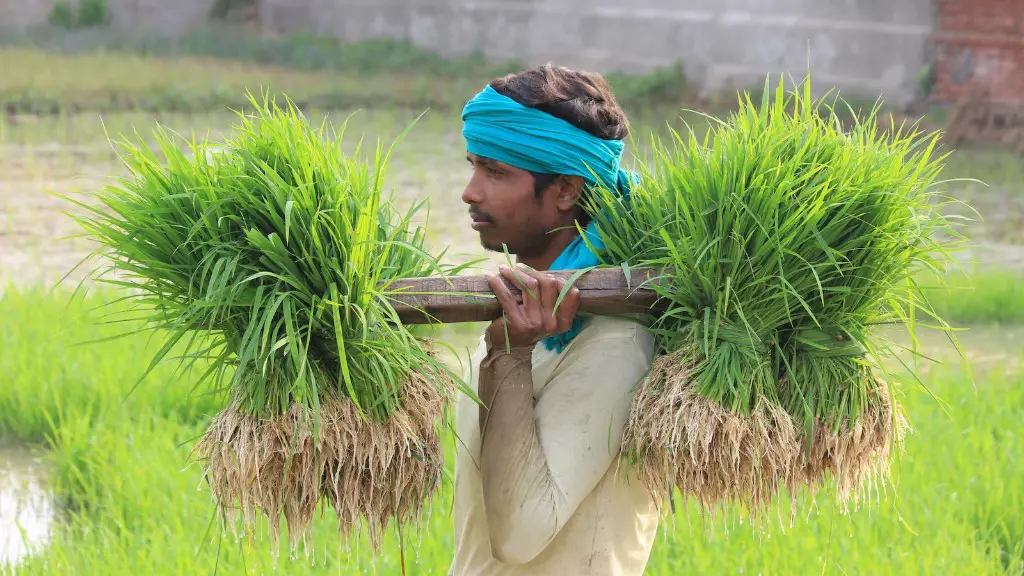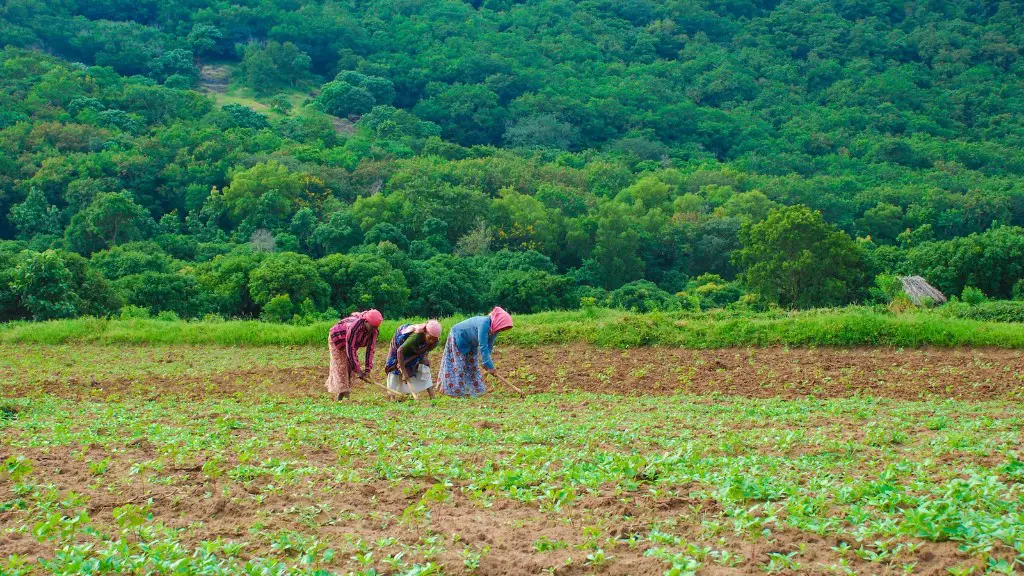Organic farming is a form of sustainable agriculture that has gained significant momentum in recent years as more and more consumers seek to buy products that are grown using natural methods. Organic farming involves growing crops and raising livestock without using chemical pesticides, fertilizers, herbicides, and other synthetic inputs. Organic farming is known to promote healthy soils, reduce water pollution and increase biodiversity.
Organic farming relies on the use of natural methods to control pests and weeds. This can include the use of natural predators such as ladybugs, and crop rotation and protective barriers to protect crops from insects. Organic farmers also use fertilizers derived from natural sources such as manure, compost, and plant mulch instead of chemical fertilizers.
Organic farming is also believed to be more efficient at conserving natural resources than conventional farming. It relies on the use of local resources and encourages the use of renewable energy sources. For example, organic farmers typically utilize innovative techniques such as incorporating legumes into crop rotations to increase soil fertility, and composting to reduce the need for synthetic fertilizers.
In addition to its environmental benefits, organic farming is seen as economically beneficial. By avoiding the use of chemical inputs, organic farming operations typically have lower input costs and can offer more affordable products to consumers. Organic farming also has the potential to create jobs and spur economic development in rural communities.
Organic farming is also thought to be beneficial to public health. By avoiding the use of synthetic chemicals, organic food is generally considered to be safer and healthier to consume than conventionally-grown food. Organic farming operations are often more closely monitored and regulated than conventional ones. This helps to ensure the highest standards of quality and safety.
Biodiversity impact of organic farming
Organic farming is seen as a means of promoting biodiversity. It relies on natural methods such as crop rotation and the use of natural predators to control pests and weeds. Organic farmers also typically incorporate cover crops into their crop rotation systems, which helps to promote diversity by providing a habitat for beneficial wildlife. As organic farmers tend to practice more sustainable land management methods than conventional farmers, organic farming is believed to be beneficial for the environment, wildlife, and ecosystems.
Organic farming systems also typically emphasize crop diversity, as multiple crop rotations help to rejuvenate the soil and promote biodiversity. For example, farmers may practice three-year crop rotations, using high-yield crops such as corn, soybeans, and wheat in the first year, while alternating with cover crops in the second and third years.
Organic farmers are also typically careful to protect the habitat of beneficial wildlife, such as birds and small animals. This ensures that these important species are maintained and can thrive in the environment, thus providing additional benefits to local biodiversity.
Organic farming and livestock
Organic farming systems also allow for the raising of livestock in a more natural environment. Rather than confining animals in cramped and often cramped conditions, organic farming encourages the use of spacious pastures and fields, which allows for a more natural environment for the farm animals. Animals raised in this way are fed with organic feed and are given access to fresh water and pasture.
Organic farmers also generally provide their livestock with more humane living conditions. For example, organic farmers typically avoid the use of certain antibiotics and other drugs that are used to help speed up growth in conventional farms. Additionally, organic farmers are required to provide their animals with enough space, shelter, and exercise to ensure their well-being.
Organic farming is also considered beneficial for the health of the animals. Studies have found that organic animals tend to be healthier than their counterparts raised in conventional farms, as they are not exposed to the same levels of antibiotics and growth hormones.
Organic farmers are also careful to use sustainable practices that protect and conserve resources. For example, farmers may take measures to reduce their water usage, avoid excessive use of pesticides and fertilizers, and implement other practices that help to maintain the overall health of their farm.
Organic farming and soil conservation
Organic farming systems also emphasize soil conservation, as their practices are designed to promote the health and fertility of the soil. Organic farmers typically use mulching, cover crops, and other soil-building practices to replenish the soil and enhance soil fertility, rather than relying on synthetic fertilizers. Organic farmers also tend to practice crop rotation systems, which help to prevent soil erosion and preserve soil health. Additionally, organic farmers often use compost and other natural fertilizers to replenish soil nutrients.
Organic farming also provides added benefits to the climate. As organic farming systems emphasize the use of renewable energy sources and soil-building practices, these farming operations are seen as a means of helping to reduce carbon emissions and slow down the rate of climate change. Additionally, organic farmers are often careful to limit their water usage, as this helps to conserve natural resources.
Conclusion
In conclusion, organic farming is seen as a form of sustainable agriculture due to its many benefits, such as its promotion of biodiversity, conservation of natural resources, and health benefits for consumers. Organic farming also offers economic benefits to farmers, as it can reduce input costs and provide more affordable products to consumers. Additionally, there is evidence to suggest that organic farming operations can help to reduce carbon emissions by using sustainable practices and renewable energy sources.



